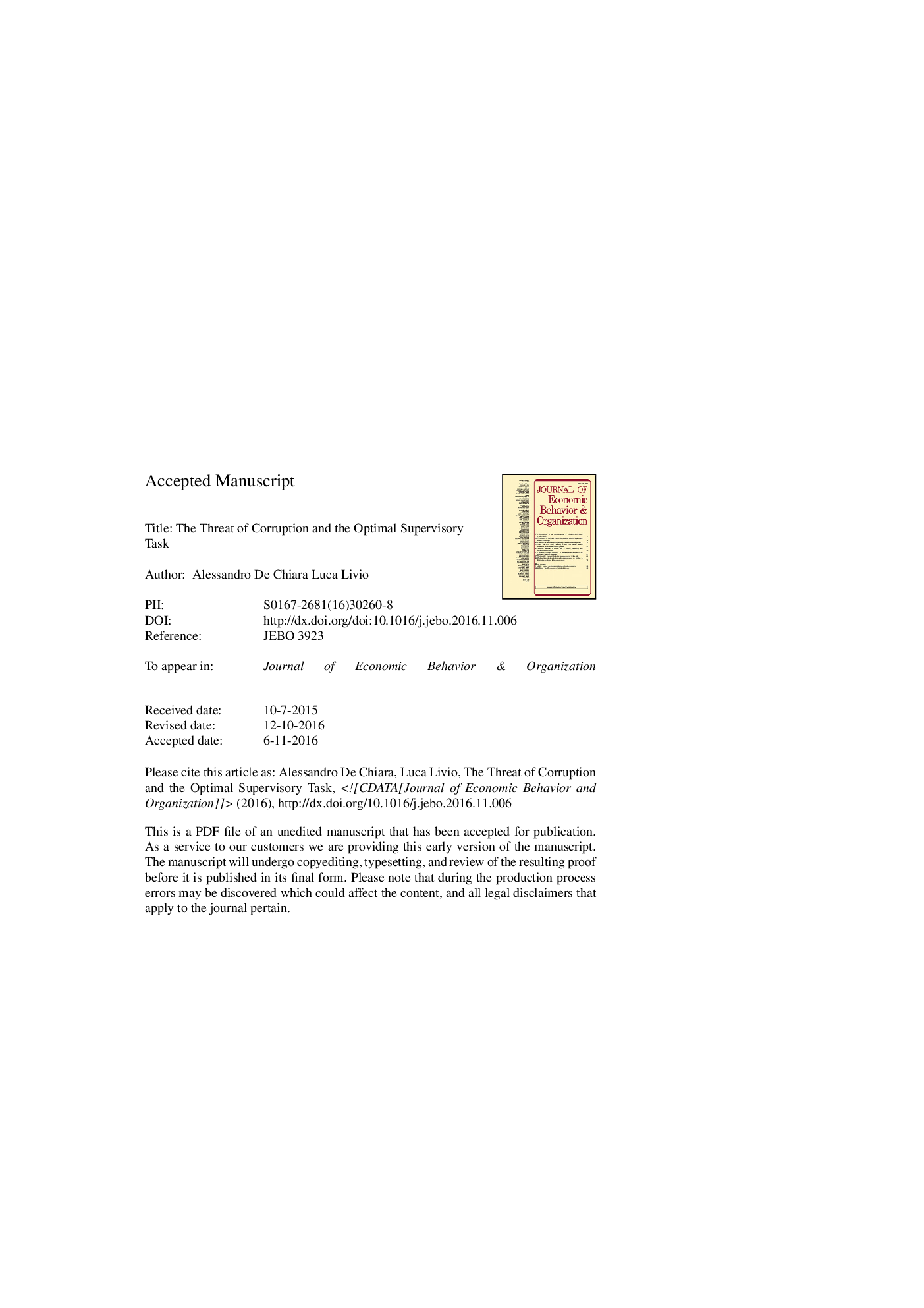| Article ID | Journal | Published Year | Pages | File Type |
|---|---|---|---|---|
| 5034607 | Journal of Economic Behavior & Organization | 2017 | 22 Pages |
Abstract
In this paper we investigate the task the supervisor should be optimally charged with in an agency model in which the principal faces corruption concerns. We highlight a fundamental tradeoff between monitoring the agent's effort choice and auditing it ex-post. Monitoring proves more effective in tackling corruption, since the supervisor sends the report before the profit realization. By taking advantage of the supervisor's uncertainty about the state of nature, the principal can design a compensation scheme which prevents all forms of corruption at a lower cost. Conversely, auditing allows the principal to save the cost of supervision when the profit realization already suffices to set the compensation due to the agent. We show that the choice between monitoring and auditing crucially depends on the supervisor's ability to falsify information and the cost of hiring a supervisor.
Related Topics
Social Sciences and Humanities
Economics, Econometrics and Finance
Economics and Econometrics
Authors
Alessandro De Chiara, Luca Livio,
